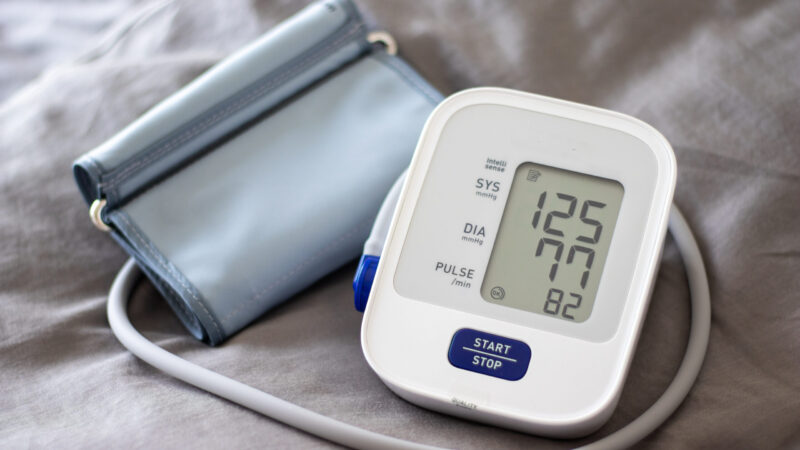
High blood pressure affects three in 10 adults in the UK. In mid and south Essex, an estimated 88,000 people are living with this condition but don’t know yet.
High blood pressure, or hypertension, is an ‘invisible danger’ because you may feel fine while it silently affects your health. It is the one of the three biggest health issues, alongside smoking and eating unhealthy food, that present the greatest health risks for local residents. If it isn’t found and treated, it can lead to serious health issues such as heart attacks, strokes and chronic kidney disease.

This Know Your Numbers Week (8-14 September), Neil Magee, advanced nurse practitioner and system clinical lead for cardiovascular health at NHS Mid and South Essex, discusses why it’s important to know your blood pressure and where you can get checked.
What is blood pressure and what do the numbers mean?
Blood pressure is the strength of your blood pushing against your blood vessels as it moves around your body. High blood pressure means your blood is pushing too hard on your blood vessels. This makes your heart work harder.
When your blood pressure is measured, it is recorded with two numbers. The top number shows how hard your heart pushes blood when it beats. The bottom number shows how relaxed your heart is between beats.
Most people have blood pressure between 90/60 and 120/80. For people over 80 years old, their ideal blood pressure is under 150/90 (or 145/85 at home).
Who is more at risk?
It’s important to have regular blood pressure checks, particularly if you are:
- over 40 years old and haven’t had a blood pressure check in the last five years
- have a family history of high blood pressure
- have an unbalanced diet, smoke or drink too much alcohol
- are overweight
- have long-term stress
- are of Black African, Black Caribbean or South Asian background.
As people get older, they are more likely to have high blood pressure. Around one in 10 adults aged 16 to 44 have it, but this increases to six in 10 in adults aged 65 and over.
Where can you get a blood pressure check?
- If you’re over 40 years old, you can have a free NHS blood pressure check at local pharmacies across mid and south Essex. Just walk in and ask at your local pharmacy
- Adults between 40 to 74 years old without pre-existing conditions will be invited to have an NHS Health Check every five years. If you’ve received an invitation, please attend this check-up
- Library members aged 18 and over can borrow a blood pressure monitor for free for up to two weeks from Essex County Council’s 74 libraries and two mobile libraries. Or visit one of 15 Essex County Council libraries and use a freestanding monitor to check and print your blood pressure readings instantly
- At your GP.
What can you do to help stop your blood pressure getting too high or to help lower it?
There are some simple lifestyle changes that can help to lower your chances of having high blood pressure, or reduce it if it is already high.
Smoking can raise your blood pressure as it makes your arteries narrower. There is support available to help you stop smoking. You can boost your overall health, and help lower your blood pressure, by being active. Drinking less alcohol can also help – try these steps to help you cut down on alcohol.
A healthy balanced diet can help you stay in good health, particularly if you eat less salt as this can lead to high blood pressure. Advice is available online to help you cut down salt, avoid processed foods and choose low-salt foods.
All these changes can help you to reach a healthy weight, which is good for your blood pressure. Better Health offers advice and weight loss plans online.
What should you do if you have already been diagnosed with high blood pressure?
If you have been diagnosed with high blood pressure, checking it at home is the best way to keep track of your blood pressure numbers. You can monitor your blood pressure at home through the BP@Home scheme.
You may not have obvious symptoms of high blood pressure. So, if you’ve been prescribed medicines to help manage it, it’s important to keep on taking it. If you think the medicine you’re taking isn’t working effectively, please book a review with your GP or practice pharmacist first – don’t just stop taking your prescribed medicines.
Read more about our Invincible Feeling, Invisible Danger blood pressure campaign Find out about Blood Pressure UK’s Know Your Numbers Week